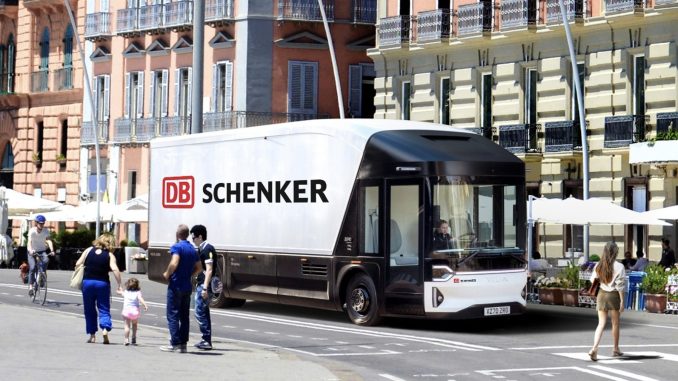
Underlining just how fraught life is for a zero emission automotive start up can, the management of bankrupt electric truck maker Volta Trucks is urgently seeking a buyer to take the company out of administration and help it complete the ramp-up to mass production, according to an inside source close to the company.
Volta, which is headquartered in Sweden and has operations in the United Kingdom, in mid October citing the bankruptcy in August of its supplier Proterra and uncertainty over its battery supplier, which had made it hard to raise sufficient capital.
Volta had picked a factory in Austria to make its trucks and had been working toward mass production before the administrator was called in
“We were 30 days out from production when the bankruptcy came,” the source was quoted as saying.
The source also revealed that Volta had raised a total around 460 million euros ($US 488 million) from investors.
Volta Trucks had taken orders for more than 5,000 vehicles, and its customer still want to take delivery of their vehicles, and the company’s management has so far received initial queries from between 10 to 20 strategic or financial investors about buying the company, the sources has been quoted as saying.
Volta’s management team now has a very short period while the company is in administration to find a suitable rescue bid for the company, before administrators start trying to minimise creditors’ losses by selling off assets.
The startup’s management began actively approaching investors in the first week of administration, with the aim of trying to drum up a bid as quickly as possible.
In a statement the administrators said “we will continue to consider the options for the company as we search for a potential buyer to secure the future of the business.”
After attracting billions from investors just a few years ago, many electric vehicle startups have struggled as rising inflation has shut off access to funding.
A few, including EV parts supplier Proterra and electric pickup truck maker Lordstown Motors, have begun bankruptcy proceedings.
Meanwhile British electric and hydrogen fuel cell truck maker Tevva, has announced it has filed a lawsuit in the United States District Court in Arizona ( against ElectraMeccanica Vehicles Corp. as well as EMV’s CEO Susan Docherty, citing seeking redress for the ‘improper and unmerited purported termination of the binding merger arrangement agreement with Tevva’.
The company claims the lawsuit exposes how EMV offered ‘spurious, defamatory allegations in a thinly-veiled attempt to justify its abrupt termination of a binding merger agreement with Tevva’ – a merger that Tevva claims was an agreement that was the ‘product of thousands of hours of time spent by both parties evaluating and structuring a mutually beneficial business combination.
Tevva says it has has chosen to ‘exercise restraint by giving EMV until 17 November 2023, to reach an acceptable solution to this situation’.
The company says the lawsuit ‘appropriately seeks extensive remedies, such as $US75 million in damages, an injunction blocking EMV from entering into an alternative merger agreement, and a protective order preventing EMV from dissipating its cash (which will be needed to pay Tevva’s damages) through dividends, executive compensation, and similar wasteful actions’.
Although the lawsuit will allow Tevva to seek redress for the damages that have been caused by EMV’s wrongful conduct, Tevva says its operations and business plans are not dependent upon the lawsuit.
Tevva says that in light of the breakdown in the relationship with EMV, it has re-engaged with a number of investors and public companies who are seeking attractive, strategic merger partners such as Tevva.
Tevva says it is confident that it will secure both medium and long-term funding that will allow it to complete its business plan and transform the commercial truck industry.




